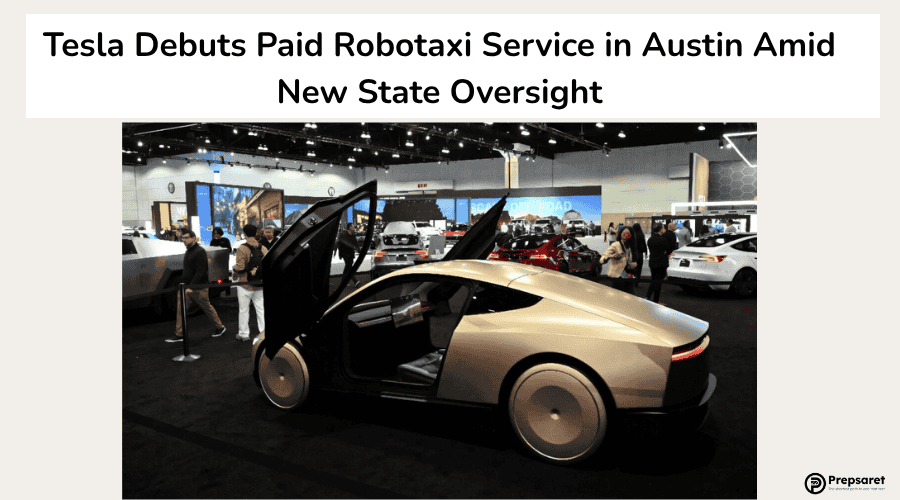Tesla has initiated a small-scale rollout of self-driving taxis in Austin, Texas, with the electric carmaker now ferrying paying passengers in vehicles that operate without a human behind the wheel.
The milestone marks a critical moment for Tesla, as it introduces autonomous ride services that CEO Elon Musk has long envisioned as key to the company’s long-term strategy.
Musk celebrated the occasion on his social platform X, describing it as the “culmination of a decade of hard work.” He emphasized that “the AI chip and software teams were built from scratch within Tesla,” underscoring the company’s commitment to developing its own technology from the ground up.
Videos shared by invited influencers showed Tesla vehicles navigating Austin’s South Congress neighborhood early Sunday with no one in the driver’s seat.
Each car included a front-seat occupant serving as a “safety monitor,” although the extent of their control over the vehicle remains unclear.
The ride experience, priced at $4.20, was showcased by Tesla investor Sawyer Merritt, who posted footage of his trip to a local venue using the robotaxi app.
Related story: Tesla Plans Public Robotaxi Service Launch in Austin on June 22
Legislative Moves Signal Regulatory Shift
The launch coincides with a change in Texas policy on driverless vehicles. On Friday, Governor Greg Abbott signed a law requiring companies to secure a permit from the Texas Department of Motor Vehicles before operating autonomous vehicles without human drivers.
Set to take effect on September 1, the regulation allows state officials to revoke permits from any operator considered a risk to public safety.
The law also obliges companies to provide emergency protocol information for first responders and certify that their vehicles meet legal and safety standards.
Though Texas had previously taken a hands-off approach since a 2017 law blocked cities from regulating self-driving cars, the new measure indicates a more cautious outlook by both parties.
Bryant Walker Smith, an expert in autonomous vehicle law, observed that “In Texas, the permit is easy to get and easy to lose,” contrasting the process with California’s more stringent approach.
Despite these regulatory changes, Tesla remains focused on keeping its operations within strict limits. Musk has pledged to prioritize safety, noting that the service will avoid poor weather, complex intersections, and will not transport minors.
Tesla’s effort follows setbacks faced by other players in the field, including GM’s Cruise. As competitors continue to refine their technology, Tesla is pursuing a distinct path, relying solely on camera-based systems rather than incorporating lidar or radar like many others in the space.
Read next: Trump Grants TikTok More Time to Secure U.S. Sale
Ready to Elevate Your Career?
Prepsaret has your back! Whether you’re preparing for your PMP, CompTIA, or HR certification, we’ve got all the resources you need to succeed.
With top study materials, realistic practice exams, and expert guidance, Prepsaret empowers you to ace your test and take the next big step in your professional journey.

